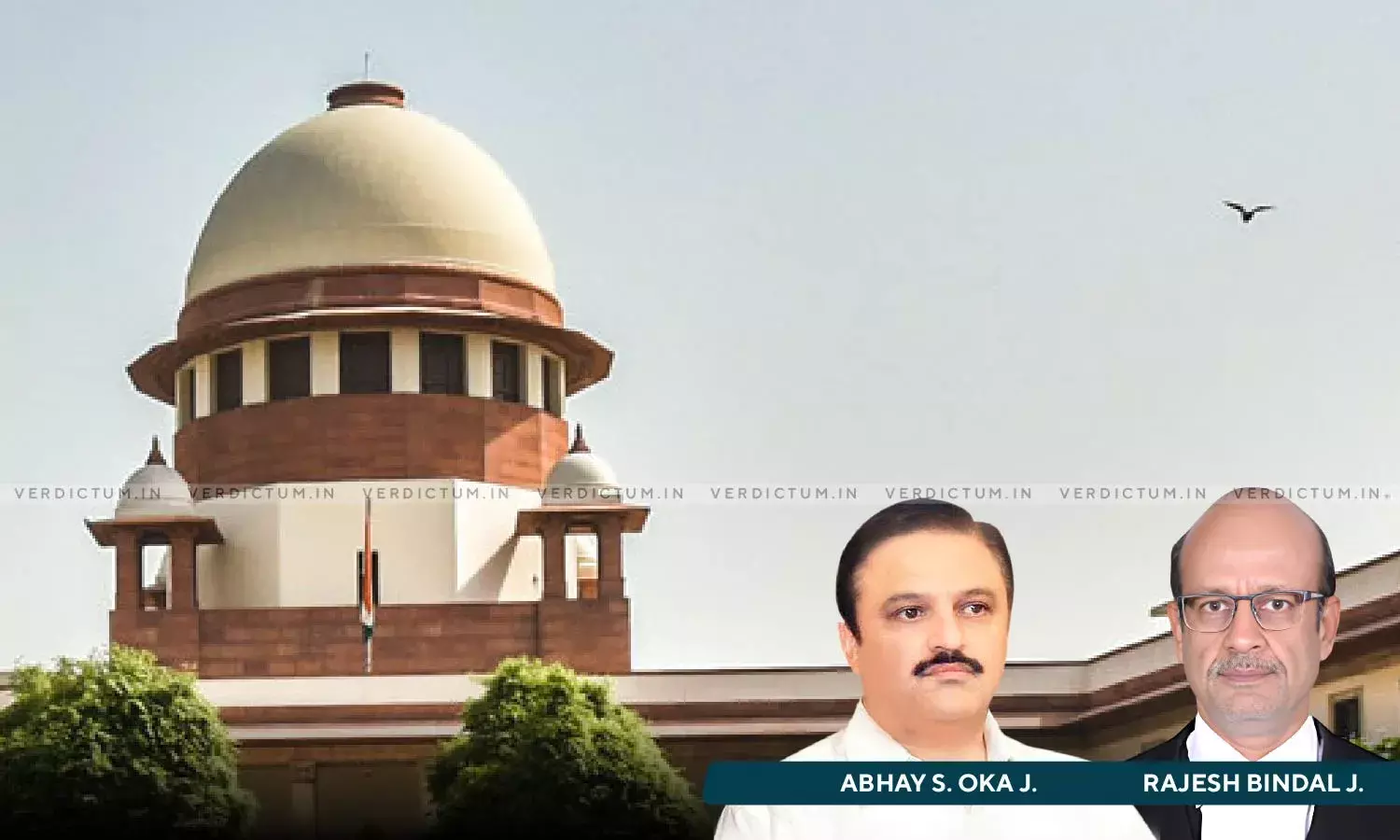Blind Murder Case- High Court Has Committed Error In Discharging Accused By Referring To Selective Statements Recorded During Investigation: SC

Observing that the fact cannot lose sight that present was a case of blind murder and the circumstances only could have nailed the accused through the material collected by the Investigating Agency, the Supreme Court said that the High Court had summed up the entire evidence in two paras without even referring to the Psychological Evaluation including Psychological Profiling, Polygraph Testing and Brain Electrical Oscillations Signature Profiling (BEOS) tests of the accused and the other aides of Respondent and ordered their discharge from the offence of murder.
The Court held, "If the facts of the case are examined in the light of law laid down by this Court on the subject, it is evident that the High Court has not even referred to the evidence collected by Investigating Agency produced alongwith chargesheet in its entirety. Rather there is selective reference to the statements of some of the persons recorded during investigation."
While stating that there was total non-application of mind by the High Court while exercising its jurisdiction in a manner that is not vested in it to scuttle the trial of a heinous crime, a two-judge Bench of Justice Abhay S. Oka and Justice Rajesh Bindal observed that “Though Psychological Evaluation test report only may not be sufficient to convict an accused but certainly a material piece of evidence. Despite this material on record, the High Court could not have opined that the case was not made out even for framing of charge, for which only prima facie case is to be seen”.
Advocate Kunal Cheema appeared for the Appellant, whereas, Advocates Aaditya Aniruddha Pande and Himanshu Bhushan appeared for the Respondent.
The dispute arose out of an FIR registered for murder of Manmohan Singh Sukhdev Singh Virdi, a resident of Virdi’s Bungalow, whose body was found lying in a pool of blood in his bedroom. Resultantly, a trial was conducted by referring to some of the statements recorded by the police during investigation. Even though Psychological Evaluation and Brain Electrical Oscillations Signature Profiling (BEOS) conducted on first Respondent and his four other aides lead towards their accusation in the crime, the Respondents were discharged. This was opposed by the Respondents by contending that it was a case of blind murder and there was no eye-witness. Hence, a false story was built up by the prosecution for which there was no material to support.
After considering the submissions, the Apex Court observed that at the stage of hearing on the charges, entire evidence produced by the prosecution is to be believed.
The Bench highlighted that in case no offence is made out, then only an accused can be discharged and the truthfulness, sufficiency and acceptability of the material produced can be done only at the stage of the trial.
While stating that at the stage of charge, the Court must satisfy that a prima facie case is made out against the accused persons, the Bench elucidated that interference of the Court at that stage is required only if there are strong reasons to hold that in case the trial is allowed to proceed, the same would amount to abuse of process of the Court.
Referring to a recent judgment of this Court in case of State of Rajasthan v. Ashok Kumar Kashyap [(2021) 11 SCC 191], the Bench stated that the material collected by the Investigating Agency filed along with chargesheet has been referred to in a sketchy manner by the High Court while passing its order.
Further, the Bench highlighted that statements of other witnesses recorded by the Investigation Agency have not been referred to and considered by the High Court while discharging the Respondents.
“In the report of the test conducted on Respondent No.1, the opinion furnished by the Directorate of Forensic Sciences Laboratory, Home Department, Maharashtra, shows the involvement of Respondent No.1 in the murder of Captain Manmohan Singh. His psychological profiling also pointed out towards him being an antisocial personality with tendency to go against the social norms”, added the Bench.
The Bench therefore observed that the High Court has not even referred to the evidence collected by Investigating Agency produced along with the chargesheet in its entirety, and rather there is selective reference to the statements of some of the persons recorded during the investigation.
Accordingly, the Apex Court set aside the order passed by the High Court and allowed the appeal.
Cause Title: Captain Manjit Singh Virdi (Retd.) v. Hussain Mohammed Shattaf and Ors.
Click here to read/download Judgment

